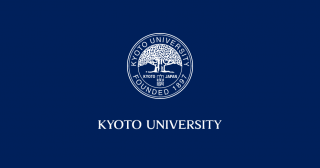On 16 November, the Graduate School of Advanced Integrated Studies in Human Survivability (GSAIS, or "Shishu-Kan") was honored with a visit from representatives of the US Embassy Tokyo and Consulate General Osaka-Kobe.
The visiting delegation consisted of two officials from the Embassy -- Mr Joseph M Young, deputy chief of mission, and Ms Teresa Galler, control officer, and five from the Consulate General -- Ms Karen Kelley, consul-general, Ms Brooke Spelman, public affairs officer, Mr Colin Fishwick, consul for political and economic affairs, Ms Helen Hwang, principal commercial officer, and Ms Eri Nakanishi, a staff member in charge of public affairs.
The visit had been arranged by GSAIS in response to the Embassy's request for a meeting with students with an interest in US-Japan relations -- a session that the diplomatic mission representatives had hoped would aid their efforts to deepen interaction between the two countries.
The visitors first met with Kyoto University faculty, including Dr Shinsuke Kawazoe, executive vice-president for student affairs and library services, who delivered welcome remarks. The rest of the faculty in attendance were four GSAIS professors: Vice-Dean Yuichi Ikeda; Dr Yosuke Alexandre Yamashiki, chairman of the Division of Advanced Integrated Studies in Human Survivability; Dr Dimiter Savov Ialnazov; and Dr Eriko Kawai. Following an introduction of GSAIS by Vice-Dean Ikeda, attendees from both sides actively exchanged views on "integrated studies in human survivability" as well as on education and research at Shishu-Kan.
The US delegation then met with 15 GSAIS students, including one joining via Skype from Egypt, where he had been stationed as a special researcher by Japan's Ministry of Foreign Affairs. The students introduced themselves, and shared their research and thoughts on the bilateral relations. Mr Young closely followed each presentation, asking questions occasionally.
The meeting proceeded to a discussion on approaches to solving international problems. At one point, the deputy chief of mission remarked on how the international community today seems in need of the kind of leaders that GSAIS is in the process of producing, in words that appeared to give encouragement and inspiration to the attending students.
When the meeting came to a close, some of the attendees lingered to continue their conversations, apparently anxious to make the most of the opportunity.

US Deputy Chief of Mission Joseph M Young

KU EVP Kawazoe

From left: Control Officer Galler, Public Affairs Officer Spelman, Consul-General Kelley, Deputy Chief of Mission Young, Principal Commercial Officer Hwang, and Consul for Political and Economic Affairs Fishwick

From left: GSAIS division chairman Yamashiki, GSAIS Vice-Dean Ikeda, EVP Kawazoe, Professor Kawai, and Professor Ialnazov

A GSAIS student sharing her research and thoughts on US-Japan relations

Skype session with an Egypt-based student

GSAIS students and the US embassy and consulate officials interacting with each other

Meeting attendees





